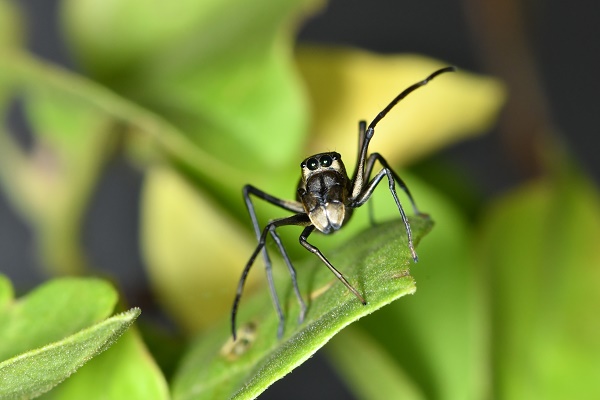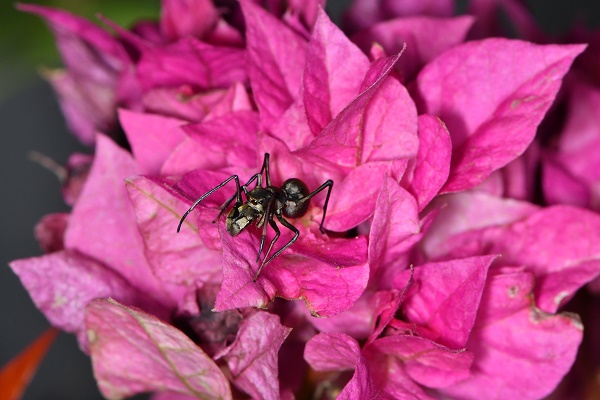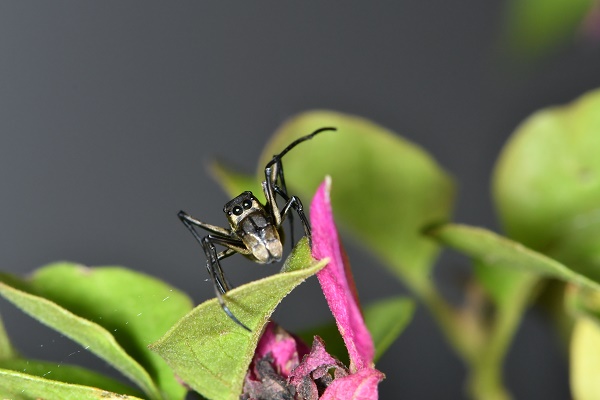Although females often undertake more reproductive activities, they tend to live longer than their males. However, no empirical study has interpreted why females often live longer than their males while under costly sufferings of reproductive activities.
In a study published in iScience, researchers from Xishuangbanna Tropical Botanical Garden (XTBG) investigated the effects of reproductive activities on longevity for two sexes, by conducting experiments using the jumping spider Toxeus magnus (Araneae: Salticidae).
The researchers first compared the adult longevity between offspring cared and non-offspring cared females, to test the overall effects of maternal care activities on mother’s longevity. They found that offspring nursing extended mother’s longevity. Females that cared offspring lived remarkably longer than those who were solely responsible for providing “milk”.
They then correlated the reproductive longevity of T. magnus mothers with the number of produced egg clutches, offspring that reached nutritional independence and adult stages.The results showed that offspring number did not affect mother’s longevity.
Further experiments and observations showed that mating activities did not affect males’ longevity, but extended female’s longevity. The sex role
difference in reproduction might drive the evolution of longer-lived adult females in T. magnus. Female-biased longevity only existed in adulthood but not in development period, as there was no significant difference in juvenile developmental time between two sexes.
The study suggested that the sex role difference in reproduction (i.e., males only engage in mating, while females also produce and attend eggs, and provide long-term offspring caring) could be the driving force of the adult longevity difference.
Although males could die after mating, mated females need additional time for gestation, egg production, egg attendance and post-egg hatching maternal care. On average, adult female spiders lived 95 days longer than adult males, which is almost the same duration as the period from egg-laying to offspring dispersal.
"To our knowledge, this is the first study to test the effects of nutritional provisioning and non- nutritional nursing (two major components in offspring caring) on females’ longevity separately,” said CHEN Zhanqi of XTBG.
Contact
CHEN Zhanqi Ph.D Principal Investigator
Key Laboratory of Tropical Forest Ecology, Xishuangbanna Tropical Botanical Garden, Chinese Academy of Sciences, Mengla, Yunnan 666303, China
E-mail: chenzhanqi@xtbg.ac.cn
Published: 23 May 2024

Jumping spider Toxeus magnus (Image by WANG Yirong)

Jumping spider Toxeus magnus (Image by WANG Yirong)

Jumping spider Toxeus magnus (Image by WANG Yirong)



